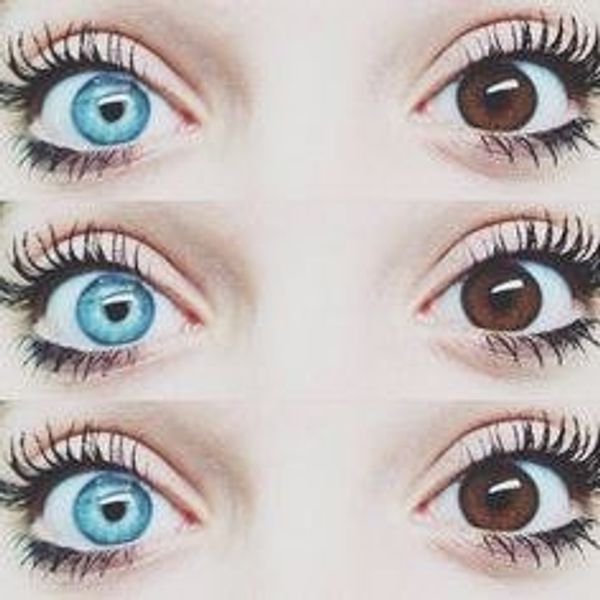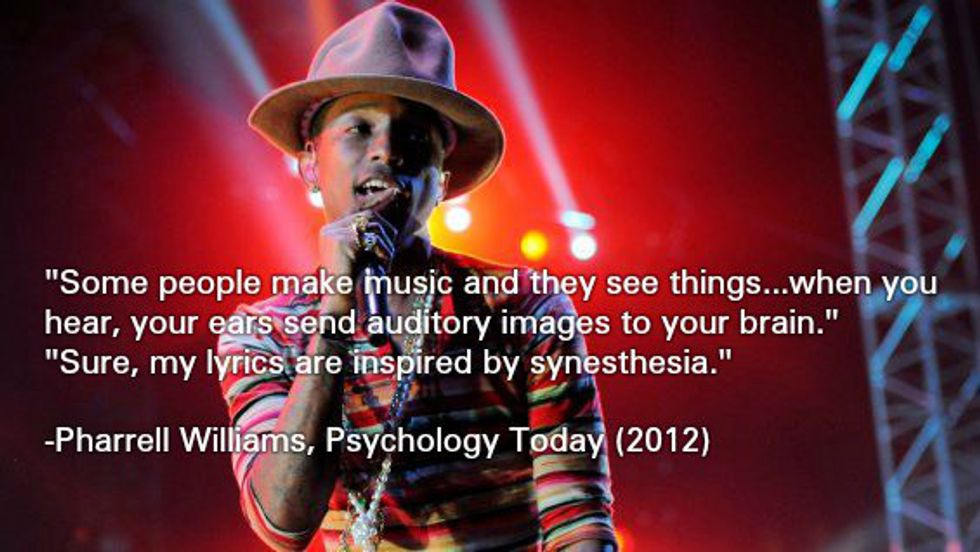Synesthesia is best described as a neurological experience in which senses unite, joining together to create a unique experience for the individual affected. Synesthetes may be able to "taste" words, see or taste sounds, smell colors, see scents, or experience other unique phenomenon involving the senses. This condition affects up to 4 percent of the population.
Characteristics of synesthesia are caused by a "cross-wiring" of the brain. Particular areas may be ignited or fired that deal with other senses when experiencing the world. This may cause colors to have "sounds" or certain letters and numbers to always be a particular color within someone's mind. Some people even claim that certain words have a "taste" to them. Synesthesia is not a hallucination, but rather a relative effect of one sense on the other due to "connected" brain activity.
In a May 2014 study, V.S. Ramachandran and Elizabeth Seckel from the University of San Diego found that synesthetes were able to complete cognitive tasks (such as completing a puzzle) three times as fast and with fewer mistakes than test subjects who do not experience synesthesia. The affected subjects studied experienced color associated with letters of the alphabet, likely causing them to identify letters and distorted words from the puzzle more easily than the average person.
Individuals affected by synesthesia may also have a heightened sense of creativity. Researchers have found increased brain activity in the visual areas of the brain relating to response to sound in those who have synesthesia using positron-emission tomography and functional magnetic resonance imaging.
Neuroscientist and Baylor College of Medicine's Laboratory for Perception and Action director David Eagleman said in an October 2014 interview with Mother Nature Network that testing for synesthesia is best done through consistency.
"If you tell me that your letter 'J' is a very particular shade of powder blue … I can test you on that and have you identify exactly the shade that best matches," said Eagleman. "If you're just being poetic or metaphorical or making something up, then you can't capture those colors again. But if you're really synesthetic, then you'll be able to pick exactly those colors out years later."
David Eagleman's lab has also created an online test that may indicate whether or not someone has synesthesia.
I personally experience synesthesia in the form of seeing letters and numbers as certain colors in my head. I always assumed that this phenomenon was normal and that every person experienced it until I came across an episode of NOVA about the human brain called "How Does The Brain Work?" a few years ago (below). Certain numbers and letters may make an entire word appear that color based upon the letter that the word starts with. For example, my name (Chelsie) appears hot pink in my head because that is the shade that the letter "C" has always been to me. Numbers appear the same way: "23" is yellow because "2" has always been yellow within my mind. Some people think this means that my brain literally sees font color as the corresponding colors. However, this is not exactly the case. I visually see and recognize when a font is black, white, or a different color; but I see the word within my mind as having different shades depending upon the shade of the letter the word begins with.
Individuals who experience/ have experienced synesthesia include Marilyn Monroe, Jimi Hendrix, Pharrell Williams, and Stevie Wonder.






















